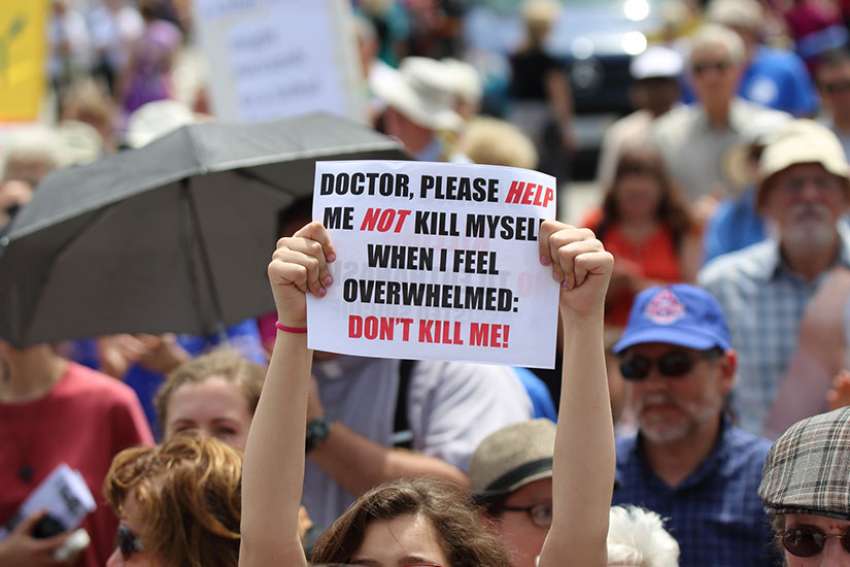In a Sept. 7 release, the CMHA said that the federal government should “choose to support recovery for mental health patients” over so-called medical assistance in dying (MAiD).
Euthanasia has been legal in Canada since Bill C-14 was passed in the House of Commons on May 30, 2016.
“Bill C-14 mentions that the illness must be irremediable, grievous and unbearable, and the patient should have a medical condition with a ‘reasonably foreseeable natural death’,” the CMHA noted in its release. “For patients who suffer solely from a mental illness, a natural death would not be foreseeable. This is one reason why CMHA believes that psychiatric-MAiD should remain illegal.”
However, the association also said that “if a patient with a reasonably foreseeable natural death also has a mental illness, that mental illness should not preclude them from being able to access MAiD.”
The CMHA also stated that “as a recovery organization, CMHA does not believe that mental illnesses are irremediable, though they may be grievous or unbearable.”
The CMHA conducted a study on psychiatric euthanasia in Belgium and the Netherlands and concluded that there are “substantial gaps in standards and compliance mechanisms,” leading it to affirm that euthanasia for patients suffering from mental illness “does not have a place in the current Canadian context.”
The CMHA said it is making four recommendations to the government: support recovery-oriented practices; continue to invest in mental health and addictions services; implement a national suicide prevention strategy, and invest in mental health research.
“Overall, the CMHA’s position on MAiD in Canada is that people should be assisted to live and thrive before they are assisted in dying,” the release said.


